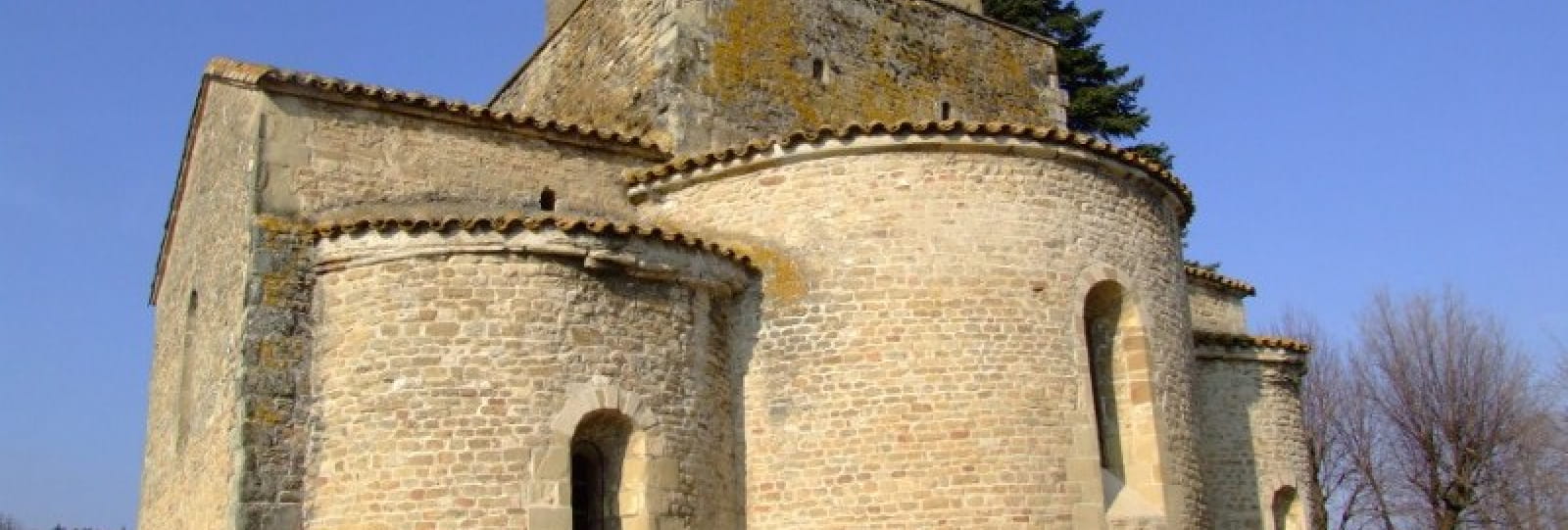
Eglise Saint Pierre
Phone04 75 62 60 13
Situated in the plain below the hilltop village of Chabrillan, in the communal cemetery, it is a fine example of Romanesque architecture. Listed as a French MH monument in 1862, it boasts a fine collection of Romanesque capitals depicting allegorical subjects.
Located on a site occupied since antiquity, Saint-Pierre de Chabrillan church was part of a priory belonging to the Drôme abbey of Saint-Thiers de Saoû.
First mentioned in 1275, it was built in two stages: the choir (apses and transept) dates from the 11th-12th centuries, while the nave dates from the second half of the 12th century. The transept crossing is covered by a cupola on a trumpet and engaged columns topped by richly sculpted capitals. The decorative ensemble takes up themes dear to Pre-Romanesque iconography: frieze of twists, curls, foliage, animals and plants. The sculptures in the apse seem more archaic than those in the transept, where the artist excels in the art of balance and modelling.
The chapel suffered from the Wars of Religion, and major restoration work was carried out in the 1600s. Around 1720, there was talk of demolishing it, but the people of Chabrillan were opposed, and on October 1, 1747, the consuls deliberated and declared: "the community wants the church to survive".
During the French Revolution, the church was requisitioned and used as a workshop to collect saltpetre.
In 1862, Prosper Merimée classified the church as one of the first monuments in the Drôme to be classified as a Historic Monument. In the years that followed, the church was completely renovated. The bell tower was rebuilt in the 19th century.
It underwent two further restorations in 1983 and 1988.
The main attraction of this church is the magnificent sculpted decoration on the nave's capitals, dating from the end of the 11th century.
Our services
- Parking nearby
Further information
Opening
Closed temporarily.
Through Office de Tourisme du Val de Drôme


